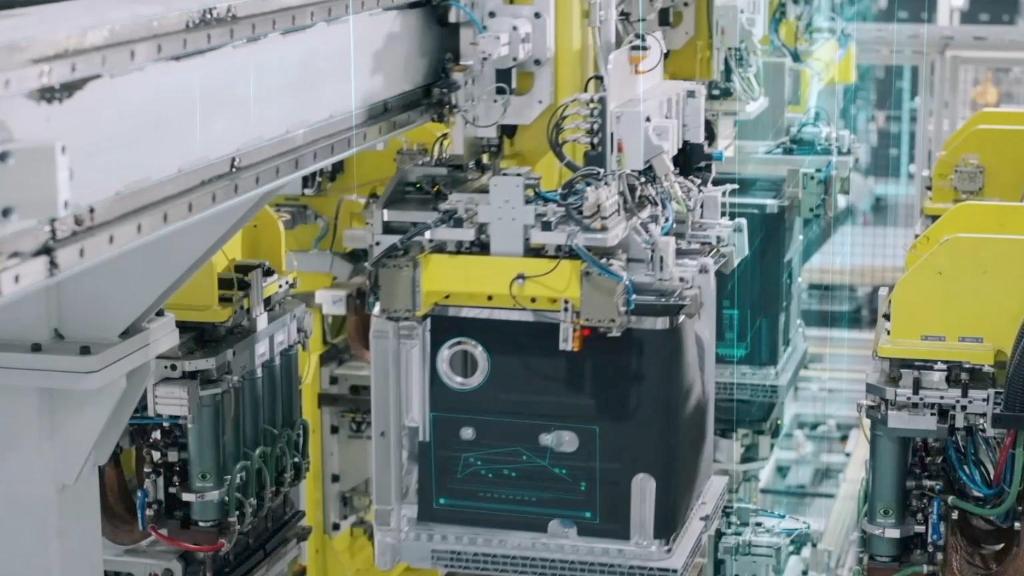LANZHOU, April 15 (Xinhua) -- In a hospital in Wuwei, northwest China's Gansu Province, a medical facility consisting of large pieces of steel and complex coils occupies a building of 30 meters high. The high-speed carbon ions produced by it are channeled into the treatment room to kill the tumor cells of cancer patients.
The advanced medical facility, called heavy-ion accelerator, is assisting human's fight against cancers. However, due to its large size, high production and maintenance costs, it has not been widely used in ordinary hospitals.
"We are developing a new generation heavy-ion accelerators for medical use, so that the treatment is more accessible to ordinary patients," said Hu Zhengguo, deputy director of the Institute of Modern Physics (IMP) under the Chinese Academy of Sciences.
CANCER KILLER
As a physical therapy method, radiation therapy has a history of over 100 years. The conventional radiotherapy, usually using X-rays or gamma rays, is prone to complications due to its inability to distinguish normal cells and cancer cells.
Scientists have found that heavy-ion beams can pass through normal tissue cells without causing any harm, and only release energy when they reach tumors.
Research shows that the relative biological effect of heavy-ions is about three times higher than that of conventional photon rays. That means heavy-ion beams could have a greater "killing power" on cancer cells, leading to a higher probability of DNA double-strand breakage in cancer cells and better preventing cancer cell residue and recurrence. By adjusting the energy and direction of the ions, precise delivery of the radiation dose to the tumor can be achieved with an accuracy of millimeters, while effectively sparing normal organs, experts say.
Heavy-ion radiotherapy is currently recognized internationally as one of the advanced radiotherapy methods. It's suitable for the treatment of some solid tumors that are unsuitable for surgery, insensitive to conventional radiation, and prone to recurrence after conventional radiation therapy, said Zhang Yanshan, vice president of the Wuwei Tumor Hospital.
BENEFITING CANCER PATIENTS
China launched the research and development of the heavy-ion accelerator for cancer treatment in early 1990s. It took the research team from IMP, which has a long history of developing heavy-ion accelerators, about three decades to achieve the transformation from a huge scientific device to a large-scale high-end medical equipment, said Hu.
They shortened the circumference of the synchronous accelerator from 161 meters used in scientific experiments to 56.2 meters, making it the smallest synchrotron system among medical heavy-ion accelerators in the world.
This project made China the fourth country in the world after the United States, Germany and Japan to have the ability to independently develop heavy-ion therapy system and clinical applications.
Compared with imported equipment, China's self-developed heavy-ion therapy facility has low operation and maintenance costs, and can provide continuous technical upgrade services, said Yang Wenjie, deputy general manager of the Lanzhou Ion Therapy Co. Ltd., a company affiliated to IMP and responsible for the development and production of the heavy-ion therapy facility.
In clinical trials, the five-year survival rate of 46 cancer participants reached 64.04 percent, Yang said.
Since the facility was put into use in the Wuwei Tumor Hospital in March 2020, more than 1,100 Chinese patients, as well as patients from Belgium and Australia, have received treatment, involving over 50 kinds of cancers including lung cancer, liver cancer, pancreatic cancer and glioma, said Zhang.
So far, 204 patients of lung cancer, which has the highest incident rate among all the cancers in China, have received treatment by using the facility, and the 24-month survival rate after treatment reached 68.65 percent.
In addition to the facility in Wuwei, seven similar facilities have been constructed or being constructed in hospitals in other cities such as Putian, Hangzhou, Wuhan, Nanjing and Changchun. And the number of the facilities is expected to reach 20 in the coming five years.
NEW GENERATION FACILITY
The existing equipment, however, cannot meet the needs of China's vast cancer patient population.
Making the equipment smaller will be the future development direction of the medical heavy-ion accelerators. And only by lowering the price of the treatment can more cancer patients enjoy the benefits brought by this new technology.
"Although the circumference of our first generation medical heavy-ion accelerator is the shortest among similar products in the world, the space utilization rate of our first generation product is not high. We hope to use new technologies to develop the next generation miniaturized devices to improve space utilization," said Hu.
"We hope to reduce the coverage area of the medical heavy-ion accelerator from 4,600 square meters to 1,500 square meters, and improve the facility performance while reducing its production costs," Hu said.
Researchers are trying two technological routes to achieve miniaturization. One is based on the new technologies developed by IMP and exquisite designs, and the other is through superconducting technology, according to Hu.
The superconducting technology route is mainly being developed by the Lanzhou Ion Therapy Co. Ltd., with an aim to develop a new generation system with compact structure, superior performance and lower power consumption by 2027, according to Yang.
"We hope that more hospitals could be equipped with the heavy-ion therapy system in the future to benefit more cancer patients." Hu added. ■












